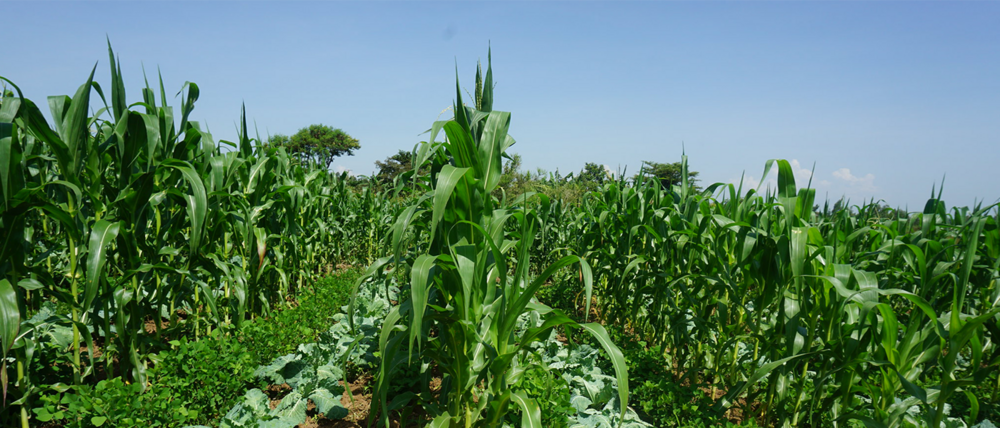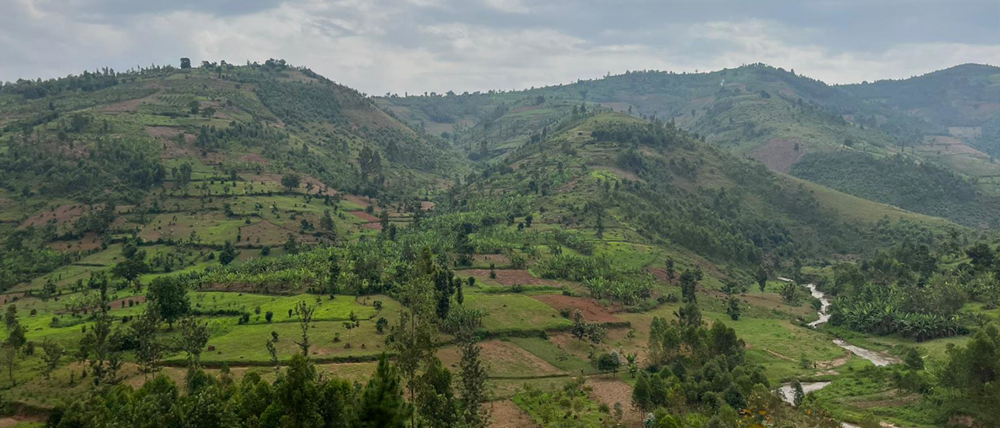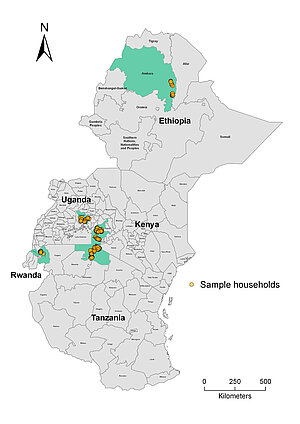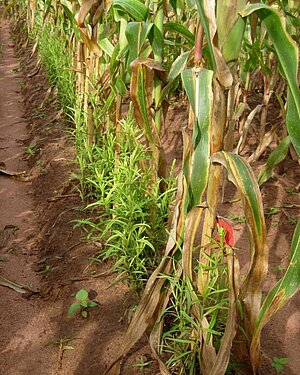UPSCALE: Climate-friendly Agriculture with Maximum Yield in East Africa

In sub-Saharan East Africa (Ethiopia, Kenya, Rwanda, Tanzania, Uganda), it is not uncommon to see yield gaps in smallholder agriculture that threaten the food security of millions of farmers. This situation is further threatened by extreme drought and ongoing climate change. In addition, conventional farming methods are ecologically costly, unsustainable, and poorly adapted to low-income agriculture. This is where UPSCALE comes in with its transformative push-pull technology.
UPSCALE is a research and innovation project that was launched in November 2020 and is scheduled to run for five years. Behind the UPSCALE project are 18 partners from four European and six African countries under the leadership of the Justus Liebig University Giessen (Germany). From the University of Würzburg, the Department of Animal Ecology and Tropical Biology (Zoology III) and the Department of Remote Sensing are involved.
Effective Push-Pull Technology
UPSCALE brings together experts from different research fields, including soil science, chemical ecology, gender studies, political science, and sustainability studies, to successfully address the challenges of developing a push-pull management system in sub-Saharan Africa. In this context, push-pull is an integrated cropping system that uses a repellent intercrop to drive pests away from the main crop (push) while simultaneously using trap crops to attract them out of the crop (pull).
Push-pull also improves soil health and water retention, provides economical and high-quality livestock feed, and a recently developed climate-smart variant using traditional grain varieties increases the system's resilience to climate change.

Positive Effects for People and the Environment
The technology used will be extended from individual fields to entire landscapes and regions, and cereals will be complemented by other important crops and cropping systems. In this context, UPSCALE promotes the development, adaptation and introduction of strategies for integrated agro-ecological management.
The food supply, the income of farmers and the resilience of agriculture to climate change in the sub-Saharan region of East Africa are to be secured in the long term. At the same time, the goal is to reduce the ecological footprint of local agriculture. In this way, an area-wide, climate-resilient and sustainable intensification of agriculture can be achieved.
Contact & Links

Prof. Dr. Ingolf Steffan-Dewenter has been Professor and Head of the Department of Animal Ecology and Tropical Biology at the University of Würzburg since 2010. Previously, he was Professor of Animal Population Biology at the University of Bayreuth. He studied biology in Karlsruhe, completed his doctorate at the University of Göttingen and habilitated there. He studies the effects of global change on insect biodiversity and biological services such as pollination and pest control. One focus of his research is Africa.
Department of Animal Ecology and Tropical Biology (Zoology III)
Dr. Michael Thiel holds a degree in Applied Environmental Science from the University of Trier, Germany. In 2013, he received his PhD from the University of Jena on the use of texture information of high-resolution SAR data to describe settlement areas. As a research associate at the Chair of Remote Sensing at JMU, he is currently researching and teaching on land use in West Africa.










